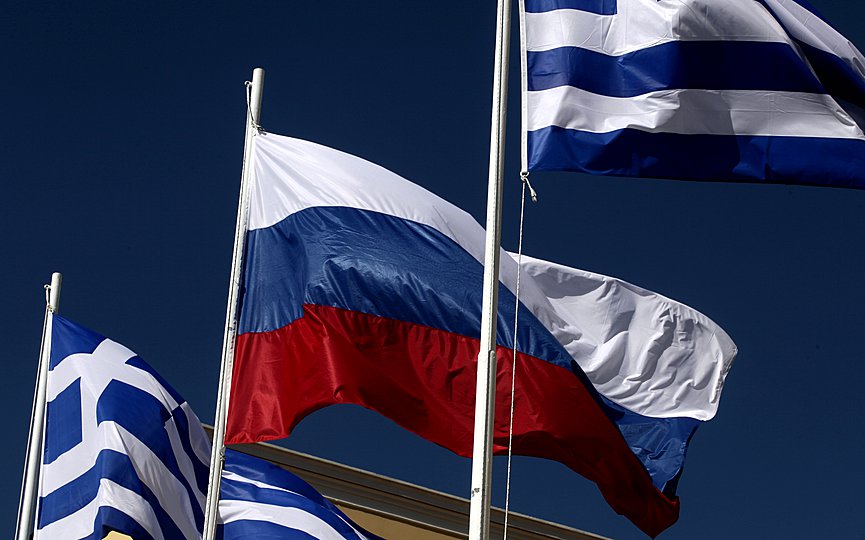Russia Warns Greece: High Economic Costs Ahead
In recent weeks, warnings from Russia regarding Greece’s energy choices have surged, highlighting potential financial repercussions for the Hellenic Republic. Andrei Maslov, the Russian ambassador to Greece, shared his apprehensions during an interview with the RIA Novosti news agency, specifically cautioning Greek authorities against abandoning Russian natural gas due to the steep costs associated with alternative energy sources.
Energy Transition Under Scrutiny
Maslov emphasized the ongoing narrative from the Greek government, which consistently publicizes its commitment to wean the country off Russian natural gas. However, he urged caution in assessing how feasible this objective truly is. "Athens has endeavored to replace Russian supplies with more expensive liquefied natural gas (LNG) from various countries," he noted, adding that this shift has resulted in an explosive rise in fuel prices for Greek consumers.
The commissioning of the LNG terminal in Alexandroupolis was touted as a strategic move. However, Maslov pointed out that the terminal’s primary user has been the Bulgarian company Bulgargaz, which indicates that significant changes in Greece’s energy landscape have yet to materialize.
The Future of Russian Gas in Greece
While Maslov did not rule out the possibility that Greece could cease purchasing Russian natural gas by 2027, he firmly asserted that such a decision might yield substantial economic losses. Current statistics reveal that in 2024, approximately 60% of Greece’s energy balance relied on Russian natural gas, corroborating Maslov’s claims with data from the Greek gas distribution company DEFA.
The Cost of Losing Russian Tourists
In a further discussion of the financial implications of Greece’s policies, Maslov remarked on the collapse of the Russian tourism market to Greece. He indicated that the country stands to lose about €1 billion annually due to the drop in Russian tourists. "The abrupt cancellation of direct flights from Athens to Moscow and back, coupled with the exclusion of Russian bank cards from EU transactions, has drastically decreased interest in Greece as a tourist destination," the diplomat explained.
Historically, Greece welcomed 1.3 million Russian tourists in 2013, but that number has plummeted to about 800,000 annually in recent years. Alarmingly, in the first ten months of 2024, only 15,000 Russian visitors have traveled to Greece, a shift attributed to the cessation of direct flights and banking barriers.
Economic Ripples Across Various Sectors
Maslov illustrated that Greece’s economy, particularly sectors like fur production, has suffered significant revenue losses amid the decline in Russian visitor numbers. He did acknowledge that some Russians still express interest in luxury holiday resorts in Greece, but this does not translate to a revival in mass tourism.
Economic Implications of Energy Decisions
Ambassador Maslov articulated a stark warning: if Greece persists in its strategy to disengage from Russian energy, significant financial expenditures loom on the horizon. He pointed out that the Greek government persistently echoes its desire for energy independence from Russia. However, the ambassador questioned whether this goal was truly achievable or if it was merely an idealistic pursuit.
He added, “The transition to more costly LNG from other nations has led to a surge in fuel prices. As a result, the Greek populace has been burdened with exorbitant utility bills.”
International Pressures and Local Impacts
The geopolitical landscape has shifted as the United States aims for a complete cessation of European dependence on Russian oil and natural gas by 2027, launching projects such as the aforementioned LNG terminal to spur this shift.
Maslov acknowledged that it is feasible for Greece to fully sever ties with Russian energy sources theoretically. Nevertheless, he posed a critical question: "Why pursue this? Is Greece prepared to invest colossal sums driven by political ambitions?" He emphasized that rational decision-making should sometimes take precedence over geopolitical aspirations.
Enduring Dependency
According to the ambassador, Russia is expected to maintain a significant presence in Greece’s energy mix, still controlling around 60% of the gas supply by 2024. This revelation has sparked concerns over Greece’s capacity to effectively diversify its energy sources while maintaining economic stability.
Looking Ahead: The Financial Reality
As Greece navigates its energy transition amidst mounting pressure from international allies, the stakes remain high. The implications are not merely about energy security but also about economic viability in a landscape marked by ongoing geopolitical conflict.
With the potential loss of Russian tourists and the financial burden that comes from transitioning to alternative energy sources, Greek authorities are faced with difficult choices. The warnings from Russia might serve as a crucial reminder for Athens to weigh its options carefully.
Global Comparisons: Lessons from Other Nations
Greece’s situation echoes those in other European nations grappling with energy transition challenges. Countries that have invested in renewable energy infrastructure and diversified their energy portfolios may offer lessons in resilience.
As other nations explore their energy policies, Greece’s experience could highlight the balance between national priorities and the unavoidable consequences of international relations.
The Call for Strategic Planning
With rising energy prices and tourism declines, Greece must undertake a calculated analysis of its national strategies going forward. Strategic planning may play a vital role in striking a balance between political posturing and economic health.
Conclusion: The Path Forward
In conclusion, Greece finds itself at a crossroads where political ambition and economic reality must collide. The warnings from Russia cast a reflective light on the choices that lie ahead for Greece in its pursuit of energy independence. As the nation weighs its options between Russian natural gas and potentially more expensive alternatives, it must also consider the broad implications for its economy and the wellbeing of its citizens. Navigating this complex terrain will require careful planning and a willingness to prioritize sustainable solutions amid ever-changing dynamics.






















